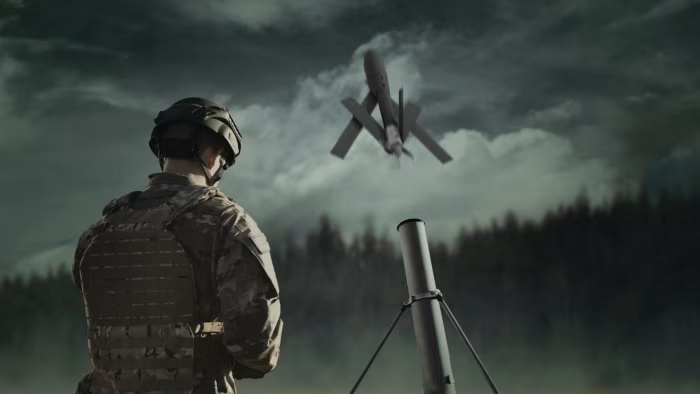Taiwan’s Purchase of Nearly 1,000 U.S. Killer Drones Amid Rising Tensions with China

In a significant move to bolster its defense capabilities, Taiwan has signed contracts to purchase nearly 1,000 loitering munitions, commonly referred to as "killer drones," from the United States. The procurement, valued at approximately NT$5.27 billion (US$163.9 million), comes at a time of heightened military tensions between Taiwan and China. The deal was finalized shortly after the People's Liberation Army (PLA) conducted extensive military exercises near the island, in response to statements made by Taiwanese leader William Lai Ching-te that Beijing interpreted as pro-independence.
Details of the Drone Acquisition
The agreement includes two distinct types of drones, each with specific capabilities designed to enhance Taiwan's asymmetric defense strategy. The Taiwanese army signed two contracts with the American Institute in Taiwan, the U.S.'s unofficial embassy in Taipei, detailing the acquisition of 685 Switchblade 300 drones and 291 Altius 600M-V drones. These drones will be strategically stationed across the island in key locations, including Taoyuan, Taichung, Kaohsiung, and Hualien.
Switchblade 300: Developed by AeroVironment, this lightweight loitering munition is designed for targeting personnel. The drone can be deployed from various platforms in less than two minutes and features a range of 30 km (18.6 miles), with a flight duration exceeding 20 minutes. The Switchblade 300 has already demonstrated its battlefield effectiveness in Ukraine, where it has been used against Russian forces. It is expected to be delivered to Taiwan by the end of November 2029.
Altius 600M-V: Manufactured by Anduril, the Altius 600M is a larger drone with a range of 440 km and a loitering time of up to four hours. It can be launched from land, air, or sea platforms and is equipped with multiple seeker and warhead options, allowing it to be adapted for a variety of missions, including anti-armor strikes. The Altius drones are expected to arrive in Taiwan by the end of 2027.
Both systems are classified as loitering munitions, meaning they can patrol a designated area, identify targets, and engage them when necessary. This capability allows Taiwan's forces to maintain a persistent presence over contested regions, potentially deterring or neutralizing any threats that may arise.
Strategic Importance of the Deal
The purchase of nearly 1,000 loitering munitions is part of Taiwan's effort to modernize its military and develop a multi-layered defense strategy. The drones will complement Taiwan's existing arsenal, which includes precision missiles and domestically produced unmanned systems. By expanding its loitering munitions capabilities, Taiwan aims to strengthen its ability to conduct asymmetric warfare—a strategy that emphasizes using smaller, mobile forces and technology to counterbalance a larger adversary's conventional military strength.
The timing of the acquisition is significant, as it follows a series of military drills conducted by the PLA around Taiwan. In recent months, China has ramped up its military activities near the island, including joint combat exercises simulating a blockade. The latest round of drills involved a record number of 153 warplane sorties and the participation of 17 PLA warships and 17 coastguard vessels. These exercises are widely seen as a response to Taiwanese leader William Lai's remarks asserting Taiwan's separate identity from mainland China.
U.S. Support for Taiwan’s Defense
The drone deal is part of a broader U.S. policy aimed at helping Taiwan enhance its defense capabilities in light of growing Chinese military pressure. Although the United States, like most countries, does not officially recognize Taiwan as an independent state, it is committed to providing the island with defensive arms under the Taiwan Relations Act. The U.S. approved the sale of the drones in June, with officials emphasizing that the systems would help Taiwan modernize its armed forces and maintain a credible defensive posture.
The use of loitering munitions, such as the Switchblade and Altius drones, adds a new dimension to Taiwan’s defense strategy. These drones provide a cost-effective way to engage potential threats without relying on larger, more expensive missile systems. The drones can also be integrated into existing military networks to support Taiwan’s command and control infrastructure, allowing for a quicker and more coordinated response to any potential aggression.
Cross-Strait Tensions and Regional Implications
The PLA's military drills near Taiwan have intensified since Lai's election as Taiwan's leader in January, with Beijing viewing his administration as pushing for independence. His statements during the May inauguration, asserting that "Taiwan and mainland China are not subordinate to each other," further fueled tensions. Beijing labeled him a “separatist” and increased its military presence around the island, leading to frequent displays of military force.
The acquisition of loitering munitions is seen as Taiwan's response to this escalating pressure, aiming to deter potential military actions by demonstrating enhanced readiness and capability. By investing in these drones, Taiwan signals its determination to defend its airspace and territorial integrity, while also adapting to modern warfare trends where unmanned systems play a critical role.
The purchase of nearly 1,000 U.S. loitering munitions marks a significant step in Taiwan’s efforts to counter the growing military pressure from China. The drones provide the island with a versatile tool to engage a variety of threats, including personnel and armored vehicles, across a wide area. As Taiwan continues to modernize its military and enhance its defense capabilities, this acquisition underscores the island's commitment to maintaining a credible deterrence posture amidst rising regional tensions.
By investing in advanced drone technology and bolstering its asymmetric warfare capabilities, Taiwan is preparing to meet future challenges with a stronger, more agile military force.


